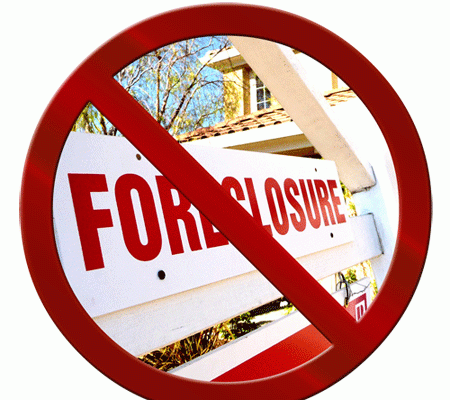Action Steps, Timelines, Consequences, and the Only Steps That Protect Your Credit From a Foreclosure
When a Maryland homeowner falls behind on mortgage payments, the stress hits fast and hard. What most people don’t realize is that the earlier you take action, the more control you keep, and the better your chances of protecting your credit, your finances, and your future eligibility to buy again.
This guide breaks down the 2025 Maryland short sale process.. You’ll learn the warning signs people often miss, what lenders are looking for, and exactly what to do the moment you fall behind.
1. What a Short Sale Really Means in Maryland
A short sale happens when your mortgage lender agrees to let you sell your home for less than what you owe. In Maryland, this process is governed by state foreclosure timelines and federal mortgage servicing guidelines.
A short sale is often the only path that protects a homeowner’s credit from the devastating long-term hit of foreclosure.
Why lenders approve short sales:
Even though it sounds counterintuitive, lenders often prefer a short sale over a foreclosure because it reduces their loss, cuts their legal expenses, and moves the property off their books faster.
The key is timing. Once a foreclosure auction is scheduled, everything becomes harder, more expensive, and more stressful for the homeowner.
2. Maryland’s Foreclosure Timeline: What Most Homeowners Don’t Realize
Maryland is a judicial foreclosure state, meaning lenders must follow strict notice and court-driven steps before they can sell the home at auction. Here’s what many homeowners miss:
Common Warning Signs Homeowners Overlook
● Your lender stops calling. Silence is not mercy. It often means your file is being transferred to the foreclosure team.
● You receive a “Notice of Intent to Foreclose” (NOI). This is your official 45-day warning. Many people think it’s “just another letter.” It’s not.
● You get certified mail from a law firm. In Maryland, law firms handle foreclosure filings for lenders. Certified letters = pay attention.
● You see a process server or sheriff posting something on your door. This usually means the Order to Docket has been filed with the court.
● You receive a “Final Loss Mitigation Affidavit.” This often indicates your lender is preparing for sale. Missing these signs can cost you the ability to complete a short sale.
3. Deficiency Judgments in Maryland: What It Means for Your Future
If your home sells at foreclosure for less than what you owe, Maryland allows your lender to seek a deficiency judgment, a court-ordered repayment of the remaining balance.
Example: You owe $380,000.
Your home sells at foreclosure for $290,000.
Your lender can still sue you for the $90,000 difference plus legal fees and interest. Short sales, when negotiated correctly, often result in a full deficiency waiver, meaning the lender cannot come back after you in the future. This is one of the core goals of the Atlas Short Sale Team.
4. What Lenders Really Want (That MostHomeowners Don’t Know)
Lenders are not emotional about the property. They’re financial institutions trying to limit loss. Here’s what matters to them:
1. Documentation
They want the hardship, income, and asset picture clearly stated so they can justify approving the short sale internally.
2. A realistic contract price
The lender will run an appraisal or BPO (Broker Price Opinion). If your buyer’s offer fits their required valuation, approval comes fast. If not, counters happen.
3. A willing homeowner
Lenders prioritize files where homeowners respond and cooperate. Slow or missing documents can stall everything.
4. A trusted, experienced short sale team
Your lender wants a file handled cleanly. Our team and our partner attorney have a long track record and know exactly what each bank requires.
5. What To Do the Moment You Fall Behind
You don’t need to be in crisis to get help. The earlier you reach out, the more options you keep.
Immediate Action Steps
- Call the Atlas Short Sale Team or complete this confidential form: https://form.jotform.com/51735144778160
- Do NOT ignore letters or stop opening your mail. Those letters are your timeline.
- Avoid “forbearance traps.” Deferred payments can cause your balance to grow faster than homeowners expect.
- Do not borrow retirement funds. You can’t outrun math, and these withdrawals later become new problems.
- Don’t move out unless advised. Many lenders require the property to be owner-occupied until approval.
Most homeowners wait too long because they feel ashamed or overwhelmed. You’re not alone. And you’re not the first person to go through this.
6. The Atlas Short Sale Team Process (Maryland-Specific)
Here’s the exact system our team uses to protect homeowners, prevent foreclosure, and negotiate full deficiency waivers whenever possible.
Step 1 — Confidential Consultation
You call us or complete our secure form. We listen, gather facts, and determine whether a foreclosure auction is already scheduled.
Step 2 — Public-Record Search
We immediately check for recorded notices, filings, or foreclosure activity.
Step 3 — Review Questionnaire + Clarify Details
We call you quickly to walk through your hardship, loan details, occupancy, and property condition.
Step 4 — Discuss Next Steps + Planning Your Move
We ensure you understand the process, timelines, and, most critically, where you’ll live next. This process is about you, not just the house. We make sure you have a plan.
Step 5 — Gather Listing + Financial Documents
If no foreclosure sale is imminent, we meet you to:
● finalize listing documents
● collect mortgage statements
● gather supporting financial information
Step 6 — List the Home + Secure a Buyer
We go on the market fast and seek qualified buyers who understand the short sale timeline.
Step 7 — Submit Contract to Partner Attorney
Once we’re under contract, our attorney:
- opens a file with your lender
- inventories liens (HOA, tax, water bills, judgment liens)
- begins the formal short sale negotiation
Step 8 — Lender Orders an Appraisal
Your lender determines whether the contract price is acceptable.
Step 9 — Approval or Counteroffer If your lender agrees with the value, they issue approval. If not, they:
- counter the price, or
- decline the offer
We then renegotiate with the buyer or re-market the property with the updated required price.
Step 10 — Negotiating Liens
After approval, the attorney begins to handle:
- HOA liens and reductions, if possible
- water bill payoffs
- municipal liens
- tax liens
Step 11 — Buyer Completes Their Mortgage Process
The buyer finalizes financing, inspections, and title.
Step 12 — Closing + Deficiency Waiver
The goal in every file: a full deficiency waiver so the lender cannot pursue you later.
Typical Timeline:
- Minimum: ~90 days
- Average: ~120 days (contract to approval)
- Some: Longer depending on lien issues or additional lenders
Learn more about our custom-tailored approach to handling the short sale process in Maryland .
7. Why This Process Helps Homeowners More Than Foreclosure Ever Could
A Maryland short sale:
- Stops the financial bleeding
- Protects your dignity and privacy
- Gives you a clear path forward
- Often results in full deficiency forgiveness
- Preserves your ability to buy again (typically after 2 years)
Foreclosure, on the other hand:
- Damages your credit for 7 years
- Makes it nearly impossible to qualify for a mortgage
- Exposes you to deficiency judgments
- Can lead to wage garnishment
- Shows up on background checks
- Creates long-term financial and emotional stress
A short sale is your off-ramp out of a bad situation, and homeowners regularly tell us they wish they had reached out sooner.
8. Final Thoughts: You Deserve a Fresh Start
Financial hardship doesn’t define you. Life happens: job loss, divorce, illness, forbearance, rate adjustments, rising costs. What matters now is taking steps that protect your future, your family, and your credit. The Atlas Short Sale Team has helped countless Maryland homeowners complete the process and rebuild, many of them buying again after just two years.
You deserve the same opportunity.
Book a Confidential, Zero-Pressure
Consultation
If you’re behind on payments, in forbearance, or already received foreclosure notices, don’t wait until options disappear.
Schedule a private call now or complete our confidential intake form: https://form.jotform.com/51735144778160
The Atlas Short Sale Team is here to help you breathe again, get clarity, and take control of your next chapter.



